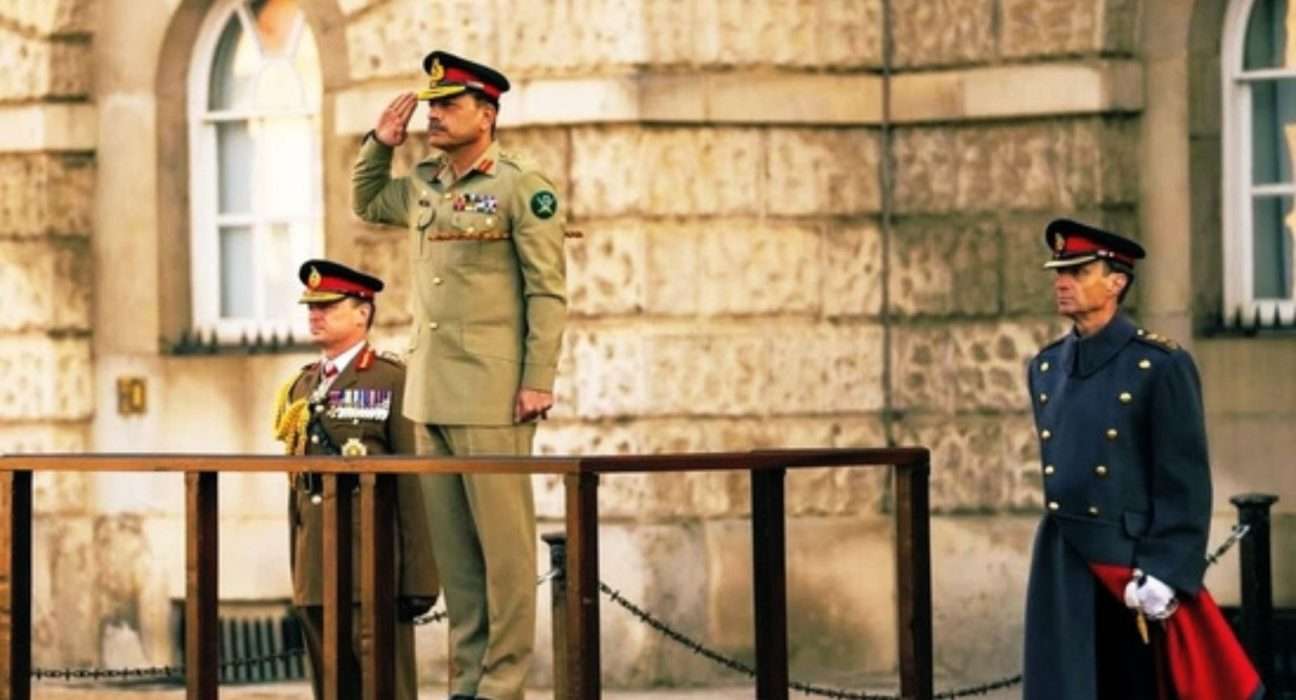In Pakistan, generals have always claimed they want nothing to do with politics, only to end up shaping, toppling, or outright running governments. General Syed Asim Munir, the current Chief of Army Staff and now Field Marshal, is no exception to this paradox. He insists he is merely a protector of the state, not a politician. In fact, he once declared his “greatest desire is martyrdom,” not a seat in parliament or the presidency. Yet his rise and recent actions reveal a story far more complicated than his words suggest.
Munir was appointed Chief of Army Staff in November 2022 and, in May this year, was elevated to the symbolic but historically significant rank of Field Marshal. The promotion carried no formal new powers, but in a country where the military casts a long shadow, symbols matter. For many observers, it marked the consolidation of Munir’s authority, elevating him to a position few can rival in Pakistan’s power structure. It also fuelled speculation: can a Field Marshal truly remain outside politics in a fragile democracy where the army has repeatedly intervened?
While Munir publicly distances himself from political office, his actions are another matter. He has taken charge of economic policy through the Special Investment Facilitation Council, an institution designed to streamline investment and development projects. Civilian governments have traditionally led such initiatives, but Munir’s visible hand in economic management blurs the line between barracks and cabinet. His speeches, too, lean heavily into ideological terrain. By invoking the Two-Nation Theory and warning against what he calls the “politics of anarchy”, he positions himself not just as a military commander but as custodian of Pakistan’s national identity. These are not the words of someone content with staying outside the political arena.
His popularity has also surged in ways that place him closer to a statesman than a soldier. During the clashes with India (Operation Sindoor), Munir’s tough posture and rhetoric turned him into a national hero. The South China Morning Post reported that his approval ratings soared, reshaping the military and political balance in his favour. In a country where political leaders are mistrusted and civilian governments often stumble, such popularity is a powerful currency.
This explains why rumours persist that Munir is eyeing the presidency. His camp dismisses such speculation as baseless, and he may genuinely have no interest in the trappings of civilian office. But whether or not he formally seeks that role, his behaviour already resembles that of a political actor. He manages the economy, shapes national ideology, dominates security policy, and enjoys more legitimacy than most elected politicians. In practice, he is already functioning as Pakistan’s most powerful politician, just not one who has ever contested an election.
Of course, there are limits to how far Munir might go. Pakistan’s civilian parties, though fragmented, are not entirely powerless. Any overt military takeover risks provoking backlash from the public and resistance from the judiciary. International actors, too, would react sharply if Pakistan slid further from democratic norms. And within the military, rival generals may resist any one man’s overreach. For Munir, formally stepping into politics could expose him to risks he has so far avoided. It is often safer for a general to control politics from the shadows rather than take the blame from the front.
History, however, offers sobering lessons. Generals Ayub Khan, Zia-ul-Haq, and Pervez Musharraf all began by insisting they had no political ambitions before plunging headlong into power. Munir’s trajectory, rising amid national crisis, presenting himself as a saviour, extending his influence into civilian domains, cultivating popularity through nationalist rhetoric, looks familiar. The only missing piece is a formal assumption of office, and perhaps he will never need it. By shaping the economy, guiding politics, and controlling ideology, Munir already exerts more power than the prime minister.
This is why his denials ring hollow. In Pakistan, political ambition is not measured by whether a general contests elections but by how deeply he moulds the system. Munir may never sit in the presidency, but he is already steering the ship of state. That makes him, in effect, a politician, just one who wears a uniform.
The question, then, is not whether Asim Munir wants power. He already has it. The real question is how he will use it, and whether Pakistan will once again pay the price of letting a general shape its political destiny.




